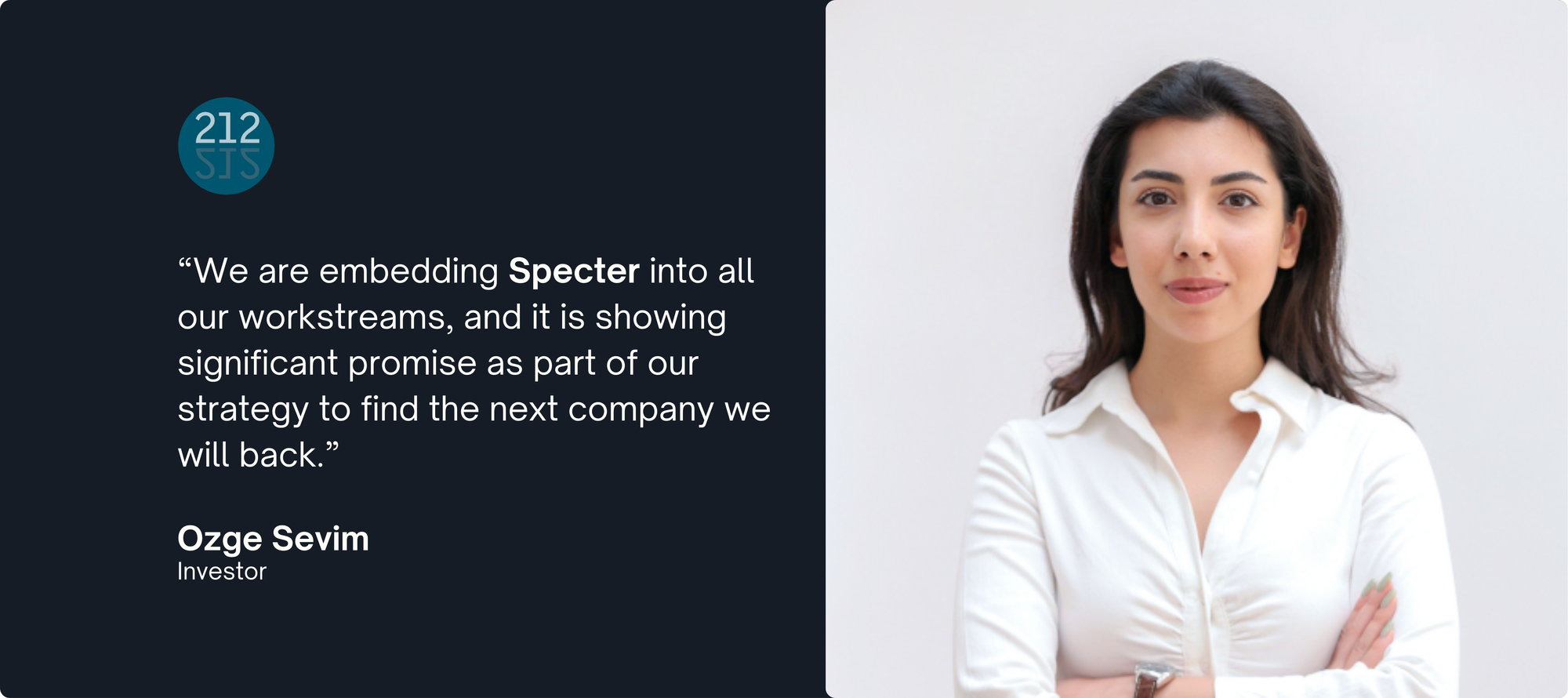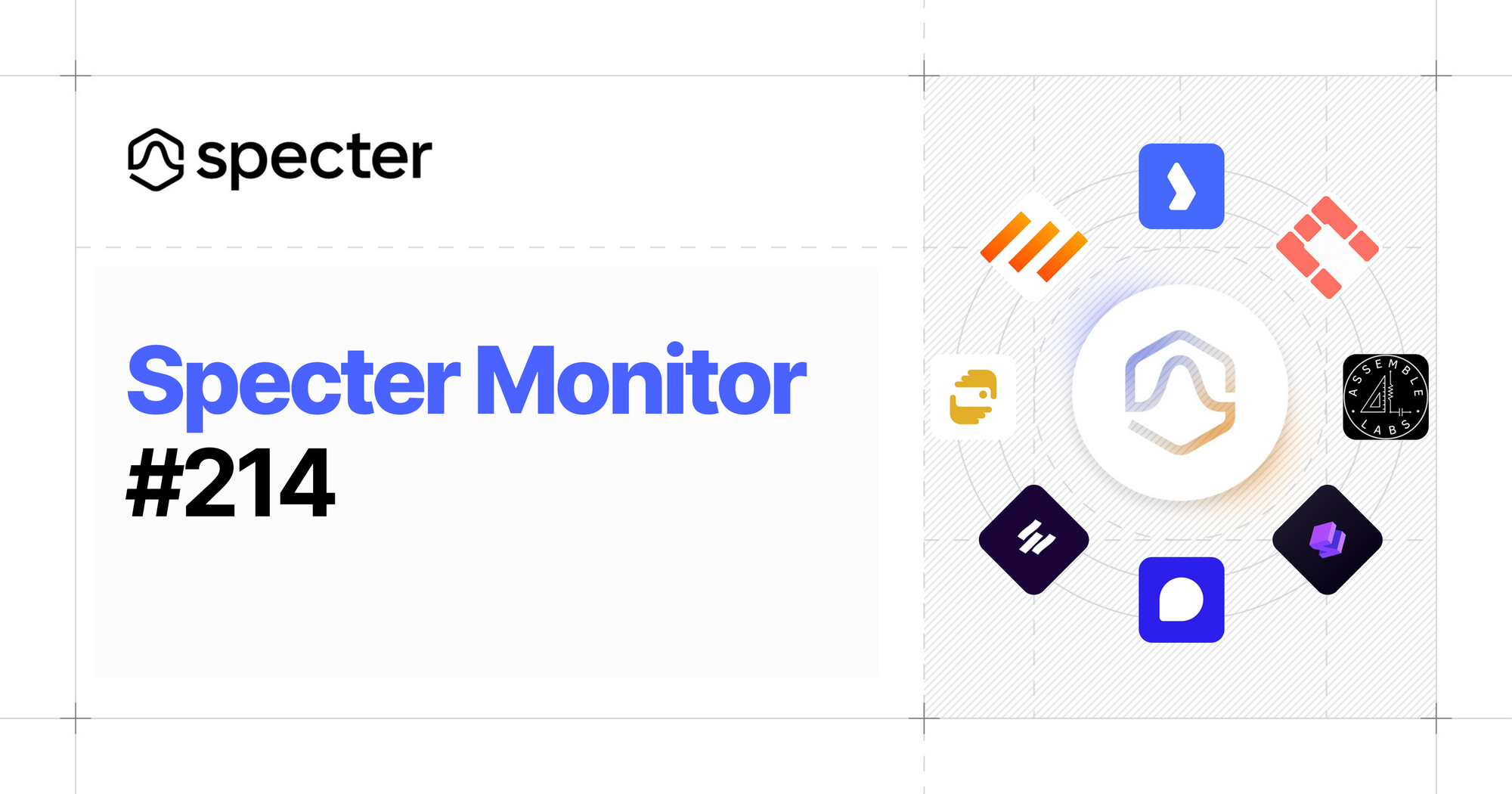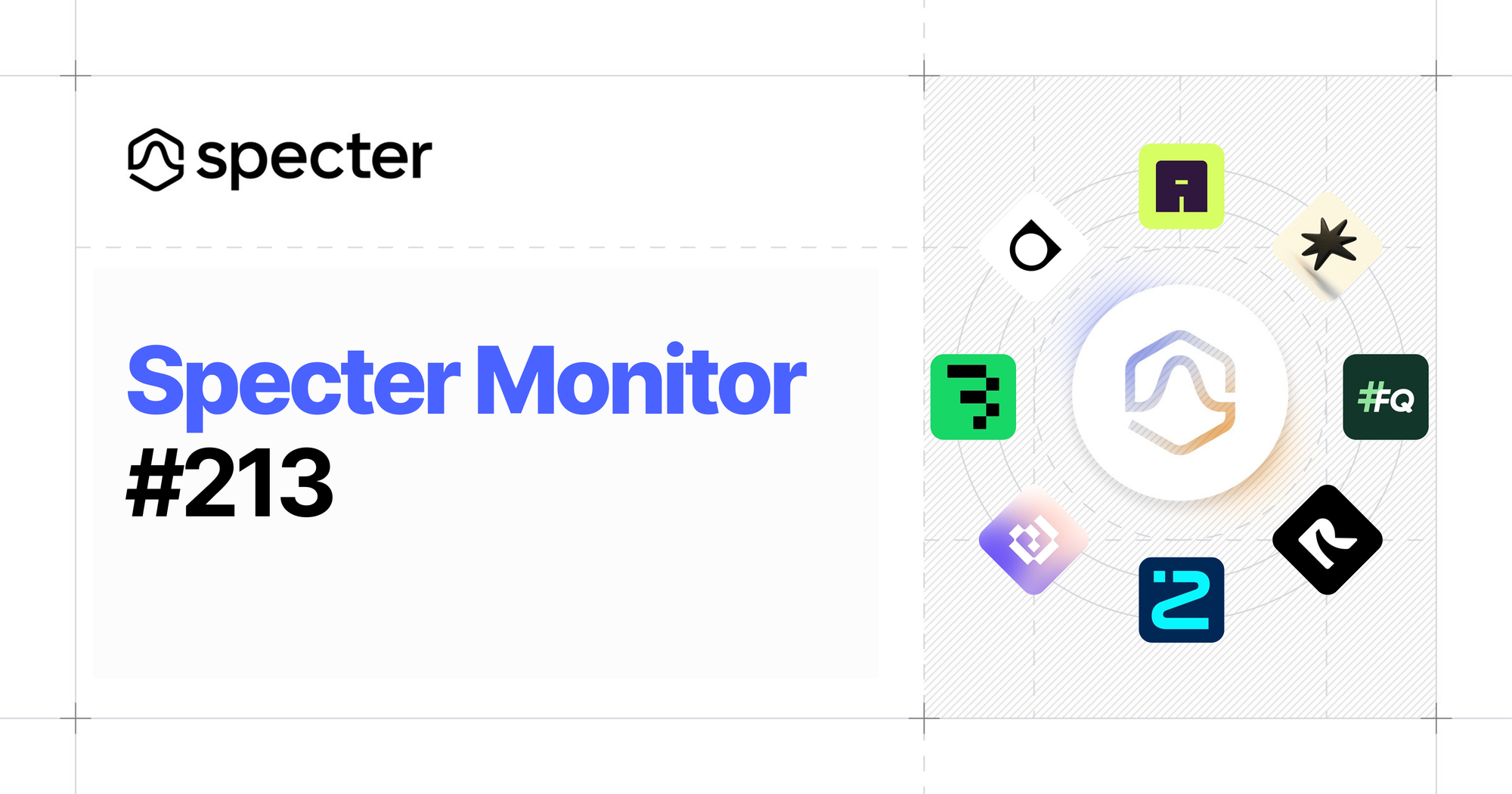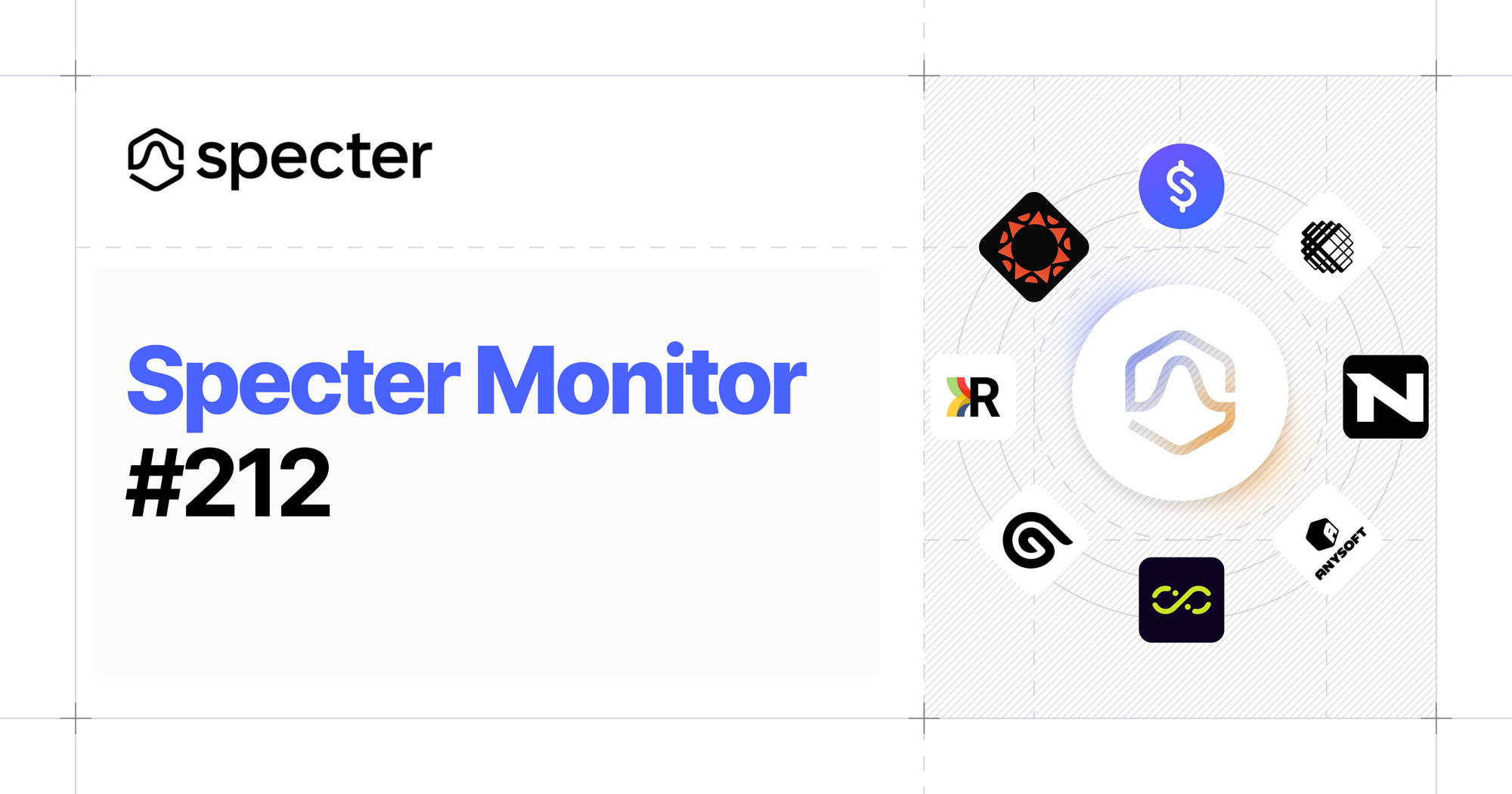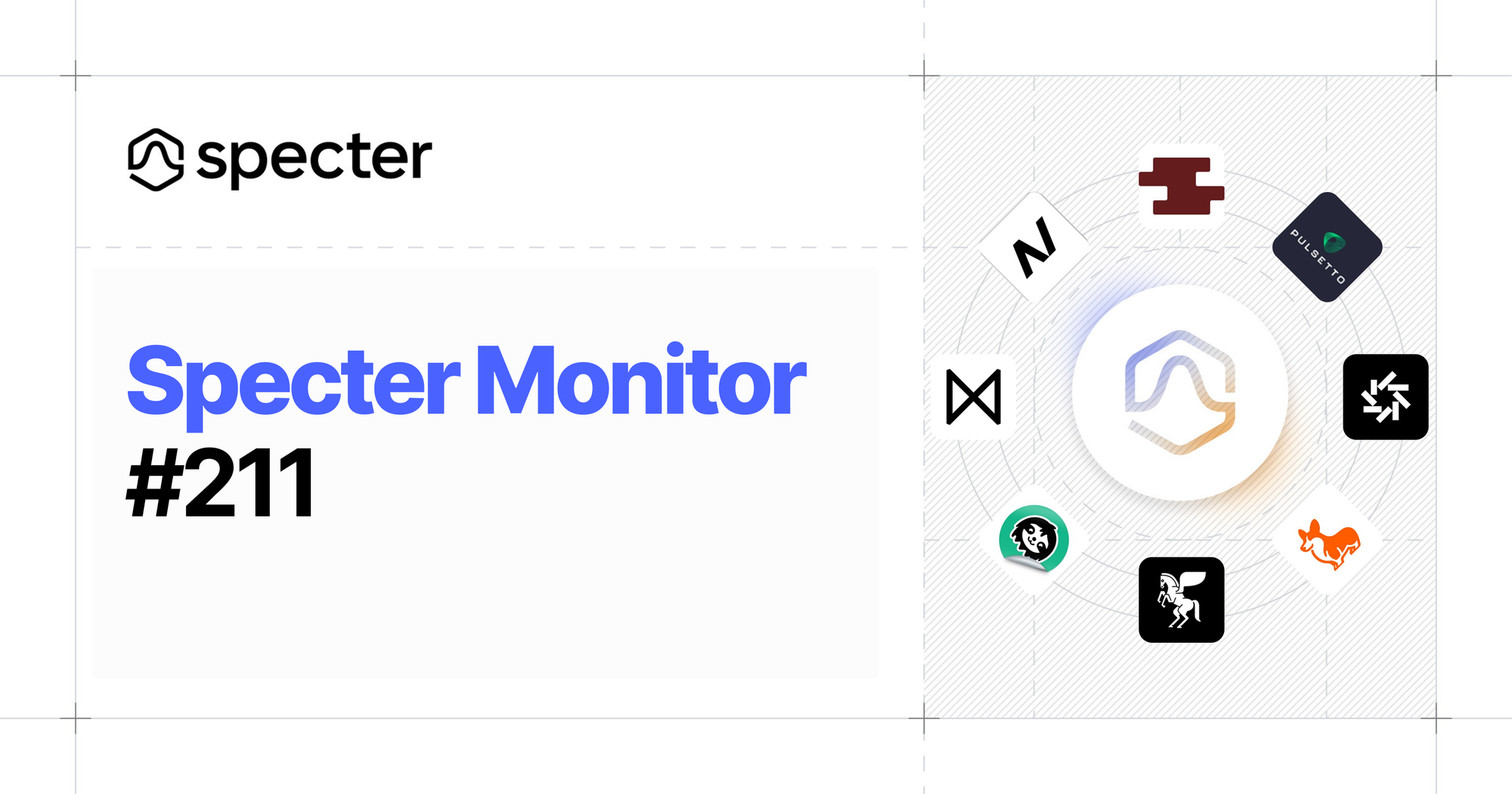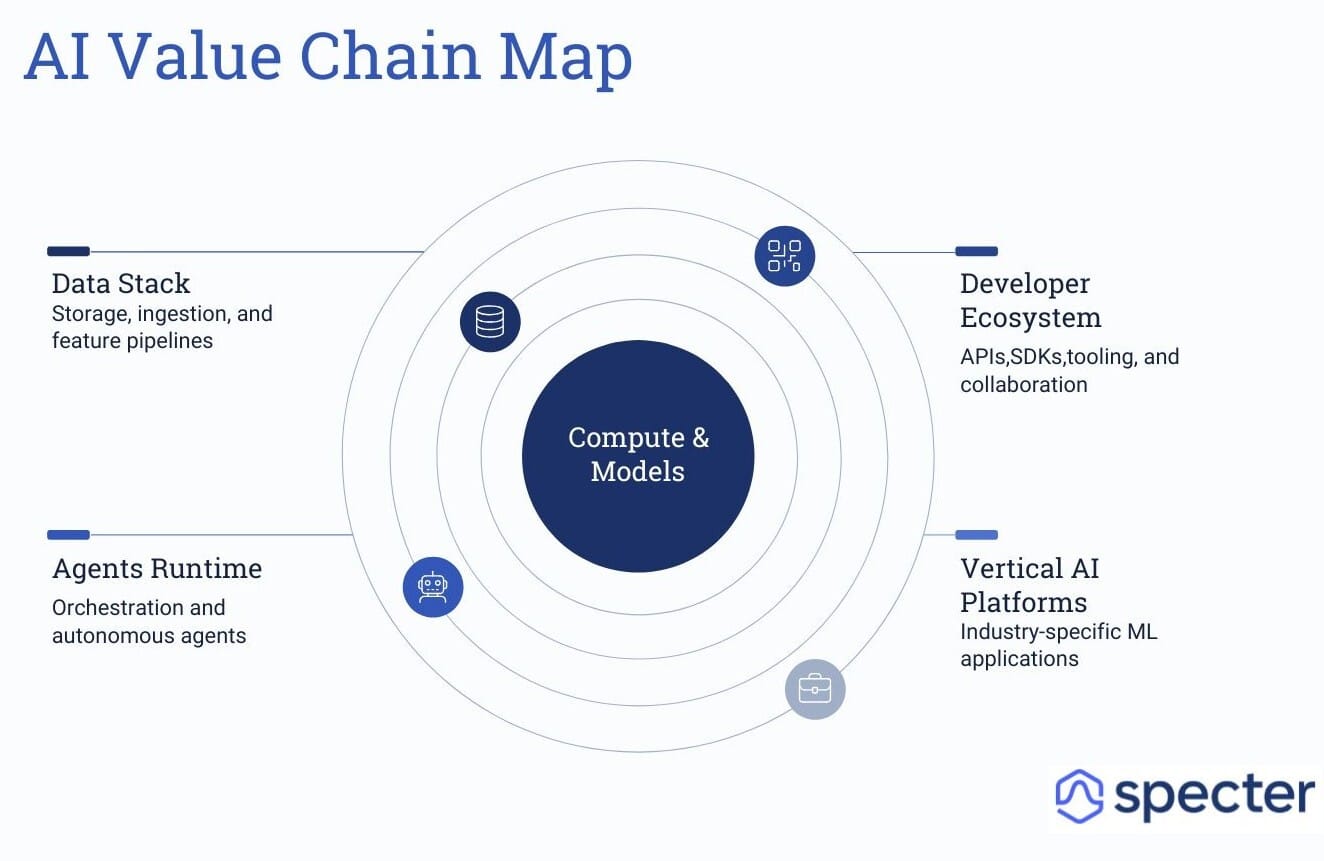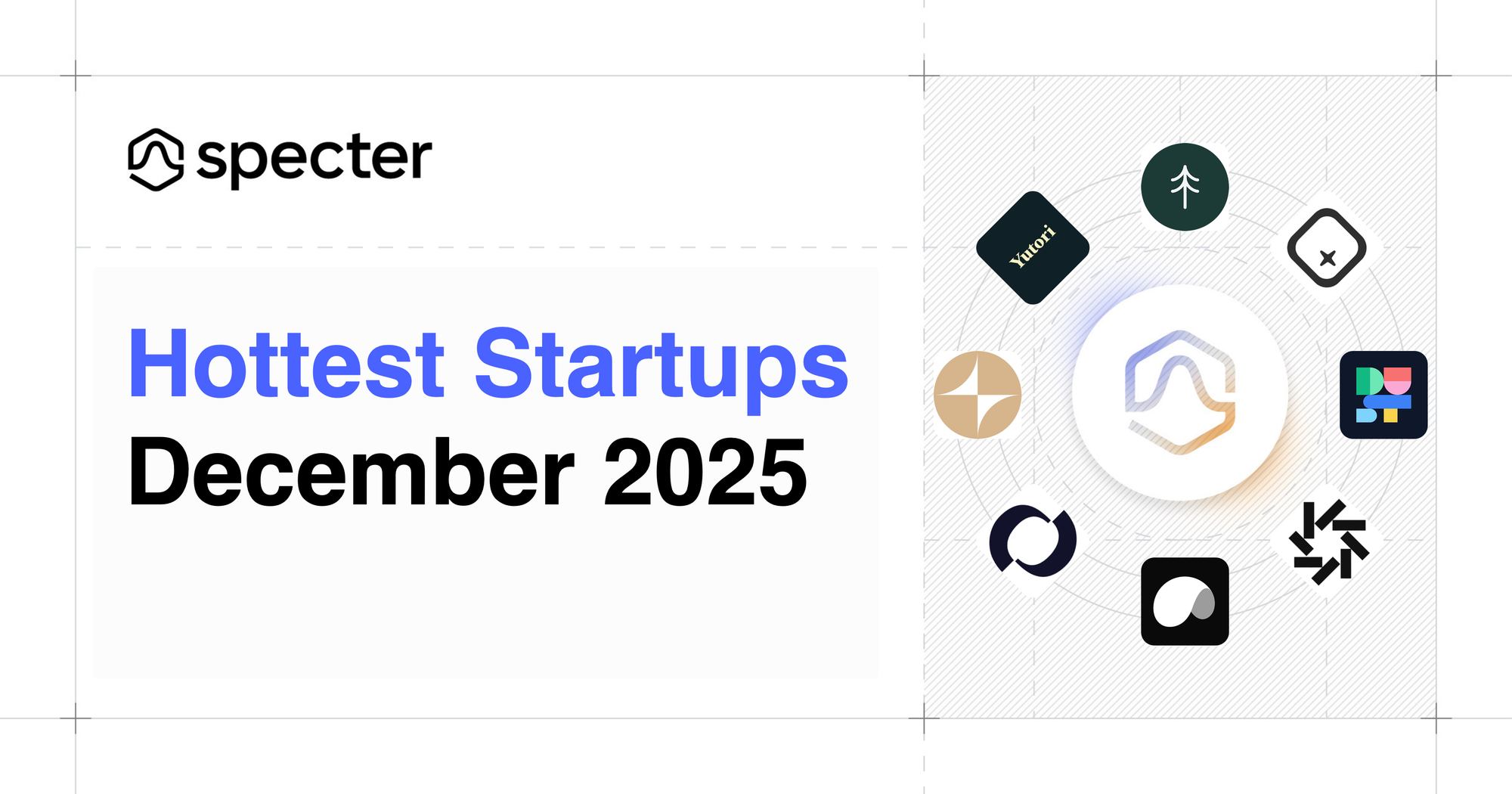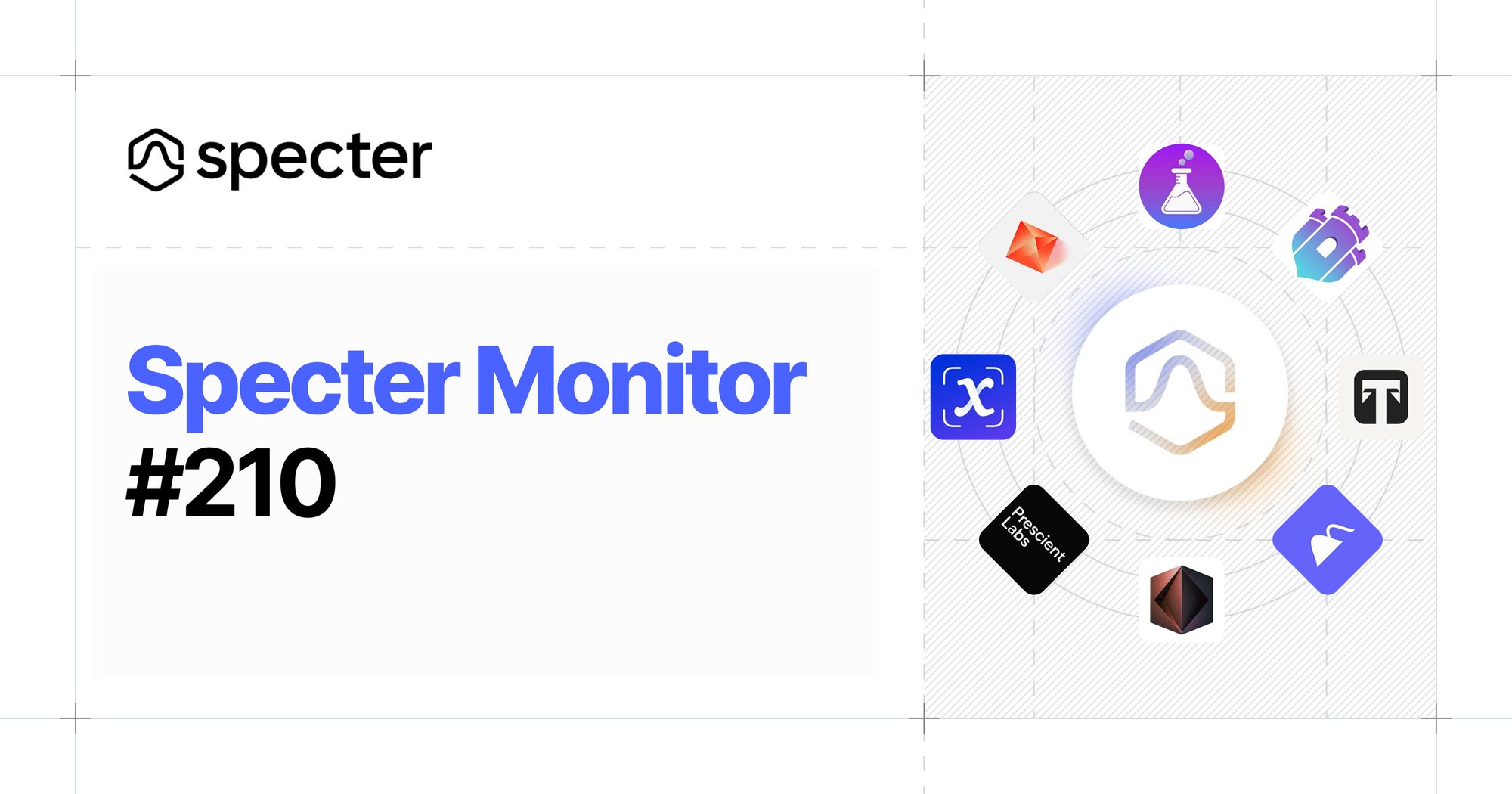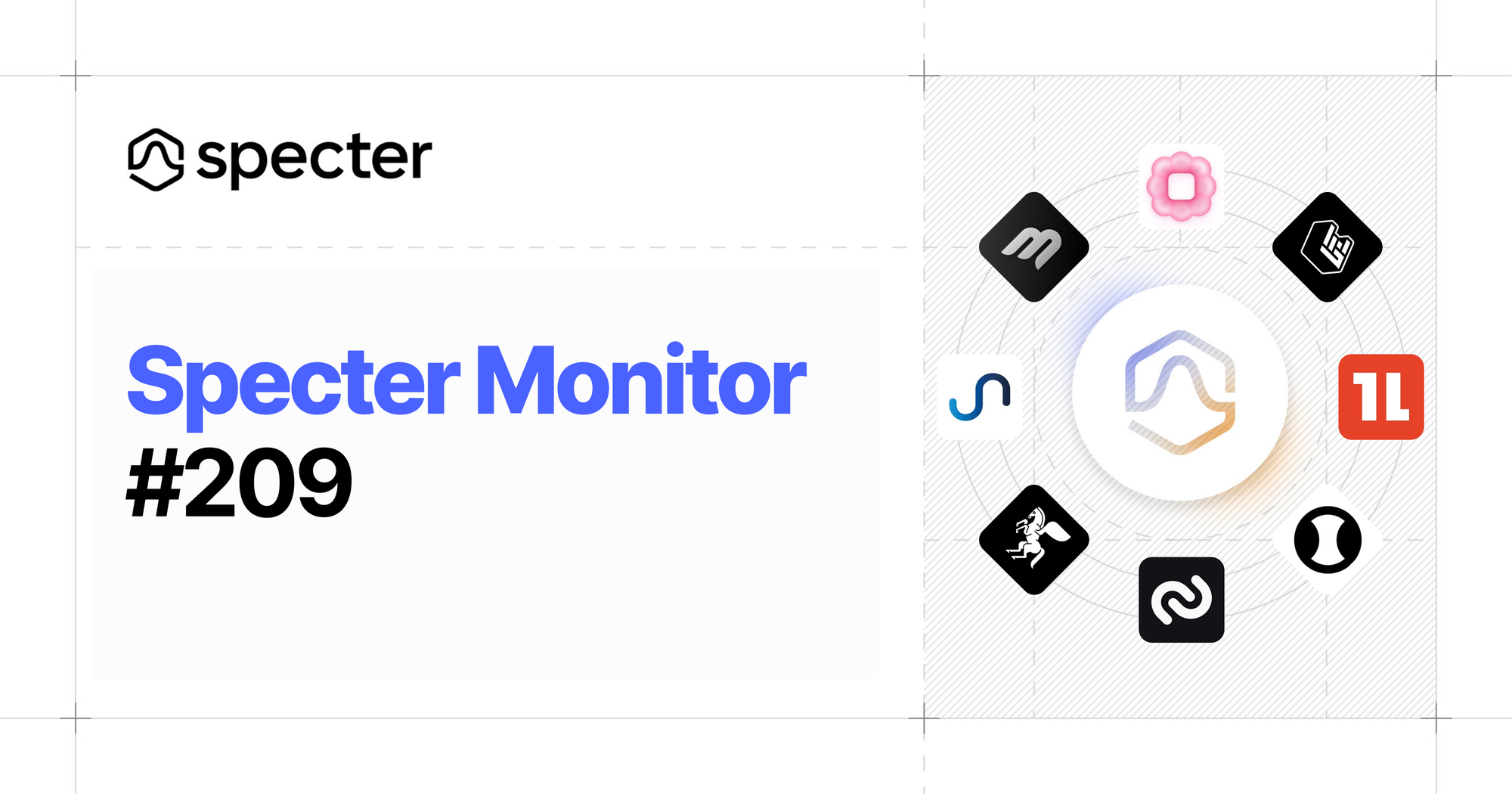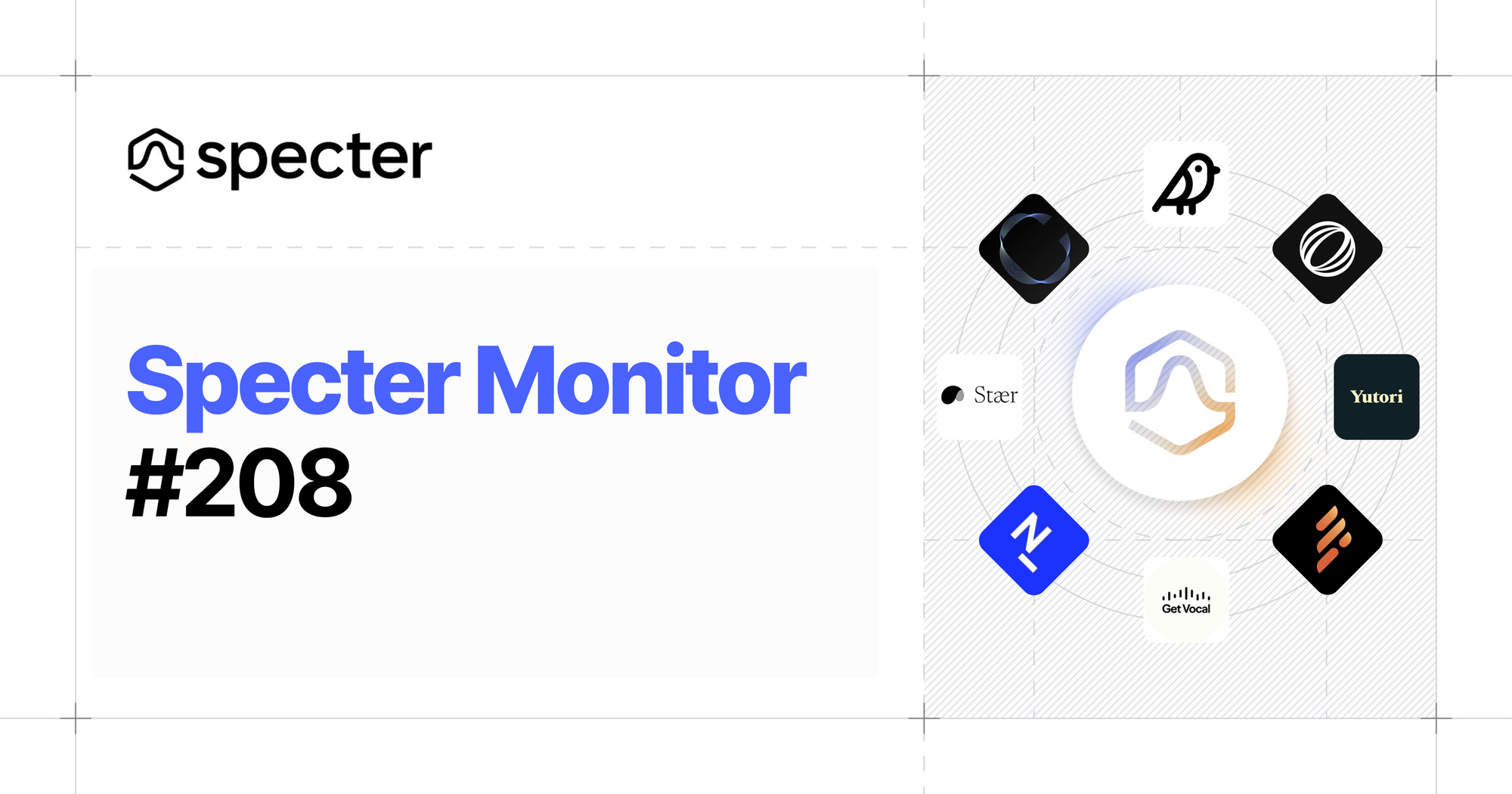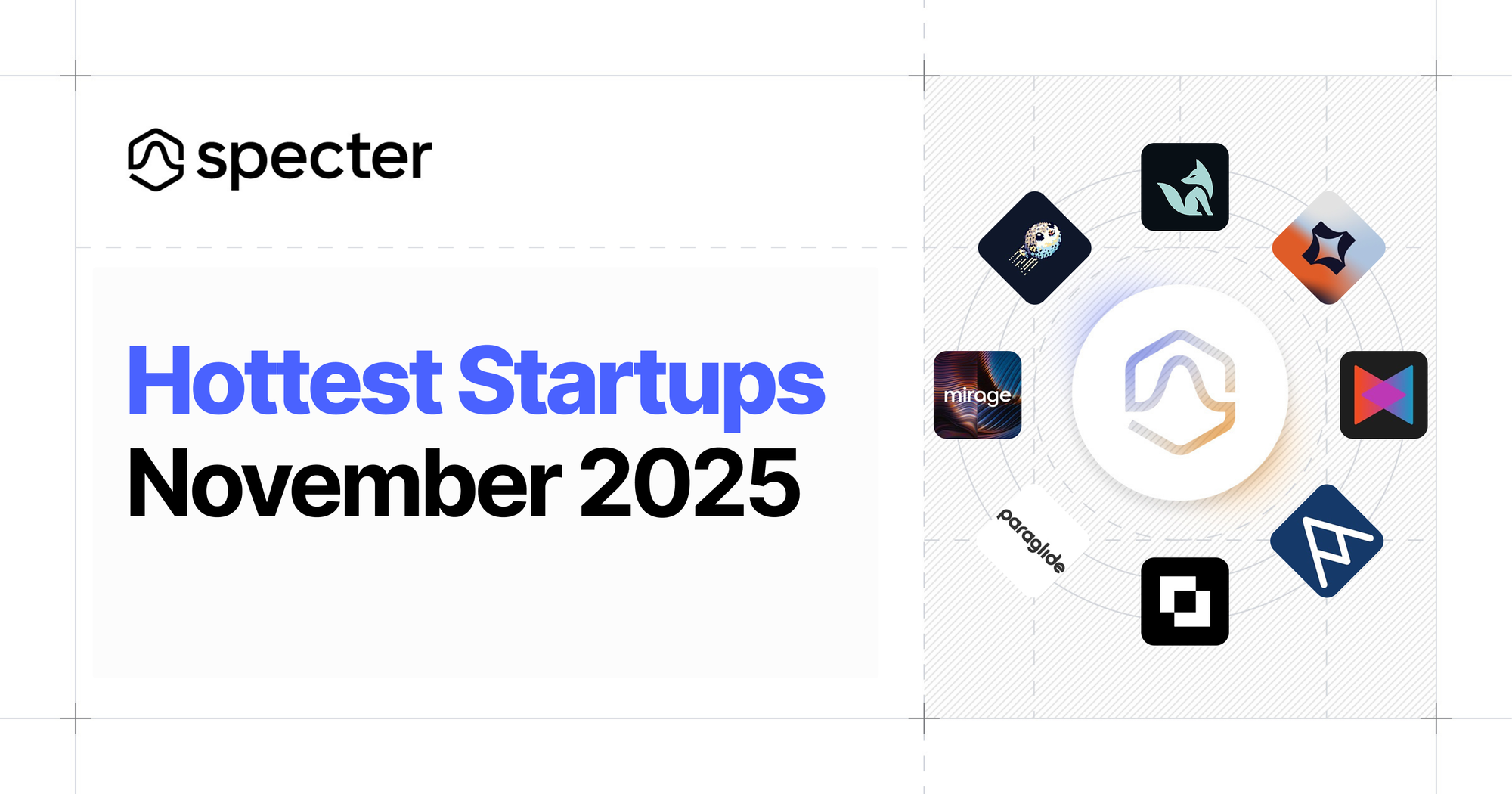212 is focused on backing early-stage companies across Turkey, CEE, MENA and diaspora founders from these regions. Their strategy is to "Test Local, Go Global". Notable successes in their portfolio include Insider, Turkey's first software unicorn, and Iyzico, a leading fintech company whose acquisition by PayU in 2019 returned the entire invested capital to fund investors.
They operate three distinct investment vehicles: 212 Regional Fund and Simya Accelerator focused on supporting B2B tech startups with international scaling potential; and 212 NexT, which targets investments in disruptive materials technologies. 212’s multi-stage strategy means it is crucial for them to harness the power of data that can bring value from Pre-Seed to Series A stages of investment.
We spoke with Ozge at the Regional Fund, who has a technical background from her studies in mechanical engineering, and operational experience at Bosch and GE Aviation. She shared with us how she and the team use Specter in their data-driven strategies.
Finding Diaspora Founders
“We are not just focused on sourcing deals in Turkey, but also finding great companies and founders in the US, MENA, CEE regions, and diaspora founders from these regions. There is a huge presence around the globe for Turkish founders, but it is hard to access all the best people through LinkedIn alone,” says Ozge.
“While we can still use our network and connections with past and current portfolio companies to generate deal flow, this is not enough to stay competitive. We believe that there is great potential in data-driven sourcing, so we wanted to strengthen our muscles in finding great founders and companies via these channels.”
The 212 team has observed trends in the local talent pools that has driven them to dig for ideal talent using much more complex search criteria. Ten years ago, it was commonplace to search for founders graduating from top-tier universities, while current thinking has adapted to look at a much wider pool of universities.
Moreover, a decade or so ago, many Turkish students would go to the US for their education, and return to Turkey to start a company. Nowadays it seems a lot of students will complete their undergraduate studies locally, travel to the US or the UK for their Masters, then start their business in the US / Europe, or return home to start there.
That means it is important to not only look at the extremes of fully local or diaspora founders but also the nuances of their education, most likely having spread across multiple locations. Specter’s Talent Signals helps 212 do this at scale, with a range of customised Saved Searches focusing on:
- The full breadth of founders’ Education history, to cover the most recent and prior institutions they have attended at different levels of study.
- Specific universities in Turkey and nearby regions producing founders from a range of higher education degree programs.
Use Cases
"Every person on the team uses Specter, and as a group we’re on the platform around 25 hours a week in total. There are a lot of different workflows we can run through Specter now, which before we’re dispersed across various different platforms, so this helps streamline our work as an investment team."
They shared some examples of processes they run through Specter’s Company Signals on a daily basis, including but not limited to:
- Scanning for a company profile after having met the founding team, to find key funding information, such as when they closed the previous round, the deal and ticket sizes, and prior investors.
- Adding Companies to Lists to create watchlists, including new companies and those they have interacted with before for traceability.
- Tracking companies that were not previously relevant, but evolve to be a good fit for the fund in the future.
- Using Landscapes to quickly map out certain verticals and relevant competitors, something they do not have a lot of spare time to do on top of dealflow management.
Specter’s real-time, bidirectional CRM integrations have also allowed the team to gain better visibility on opportunities that are completely new to the fund, and distinguish them from companies they have spoken with before.
212 has been running for more than a decade, so has built up tens of thousands of records in its CRM over time, which makes it very challenging to manually sift through to gather context. The integration allows them to filter for deals that already appear in their CRM, as well as how long ago the team’s last interaction with them took place, to understand the recency of prior engagements.
When they find an interesting signal, the push capabilities allow them to easily send the Company profile along with any chosen data points from Specter to their CRM. Our Auto Enrich feature also means this information is kept up-to-date, maintaining those data points to match what we show in the platform every time we refresh the data on Specter. This reduces the amount of time spent on manual data input, and opens up their bandwidth to focus on finding the best companies ahead of other funds.
The Investor Database has also proven helpful, providing an overview of the vast range of funds, which can then be filtered down by region, industry focus and other criteria to identify relevant investors, and see how they are performing.
"Our portfolio companies actively launch new funding rounds, and in every round the expectations and the needs of founders and investors changes. Specter is well placed to help us when we create lists of investors for our founders to outreach for their new funding rounds, so we look forward to using this feature as we ramp up on the platform!"
Another way Specter helps 212 support portfolio companies is through our “HR” Talent Signals. Observing talents who are “Searching” on a weekly basis, they can accelerate the recruitment process by identifying C-level candidates who have just come onto the market for a potential new role, and initiate conversations ahead of the curve.
"Turkey has a middle-sized VC market and tech scene, so it is very competitive to get talented people in the industry. That’s why it’s helpful to have a way to get in front of these candidates more quickly than others, which would be very hard to do at scale without Specter."
As a closing remark, Ozge acknowledged that in the present state of the industry makes using data-driven tools a no-brainer. “The funnel is getting increasingly narrow. When you’re up against a lot of other hungry investors who want to place their bets on up-and-coming founders and startups in the region, it really comes down to the numbers game.
We will look at thousands of companies, and our aim as always is to find that needle in the haystack that has the right components to grow exponentially at home and internationally. Specter is a very promising part of that strategy, and we’re embedding it into all our workstreams as we work towards finding the next company 212 will back.”



